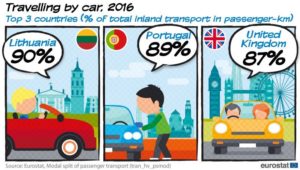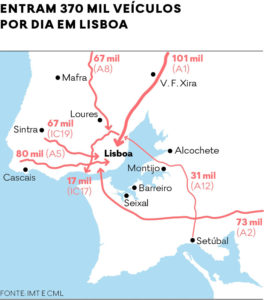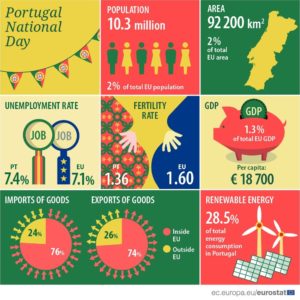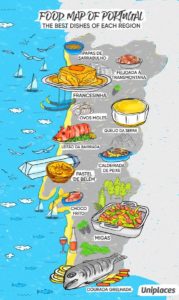
The Lisbon metropolis – with 18 municipalities – accommodates about 2.8 million inhabitants, who all seem to have the same addiction: their car! Unfortunately, a still growing number of Portuguese use the car at the expense of public transport, 5 times less utilized for commuting.

Each day 370.000 vehicles drive into the capital, in general with only the driver inside.
Most cars enter Lisbon from the south of the Tagus – via the A2 and A12 – and via the northern A1.
The third busiest route is the A5 from the famous seaside town of Cascais, also called ‘the death road’ because of the high number of fatal accidents every year.
 These large numbers of automobiles not only provoke endless traffic jams in the center but also severe air pollution. Diesel cars are by far the most sold and emissions of nitrogen oxide in Portuguese cities are 8 times above the European standard. Even higher than in urban Germany.
These large numbers of automobiles not only provoke endless traffic jams in the center but also severe air pollution. Diesel cars are by far the most sold and emissions of nitrogen oxide in Portuguese cities are 8 times above the European standard. Even higher than in urban Germany.
![]() Furthermore, the number of fatal accidents to pedestrians –mainly to people over 65 years of age – is increasing and nowadays the highest in the past five years.
Furthermore, the number of fatal accidents to pedestrians –mainly to people over 65 years of age – is increasing and nowadays the highest in the past five years.
 The solution to reducing the use of cars seems straightforward: create alternatives! With this in mind, Fernando Medina, Lisbon’s mayor, advocates a radical reduction in the cost of public transport (metro, bus), extend the number of bus lanes in the metropole and –by means of state funding – enable a free bus lane on the A5 between Cascais and Lisbon.
The solution to reducing the use of cars seems straightforward: create alternatives! With this in mind, Fernando Medina, Lisbon’s mayor, advocates a radical reduction in the cost of public transport (metro, bus), extend the number of bus lanes in the metropole and –by means of state funding – enable a free bus lane on the A5 between Cascais and Lisbon.
 But the government should do much more. Only 15% of public transport in Portugal is subsidized, compared to 50% in the EU. Moreover, cycling has to be encouraged and the network of cycle paths expanded. Today only a tiny fraction (1%) of the population uses their bicycle for commuting, compared to 7% in the rest of Europe.
But the government should do much more. Only 15% of public transport in Portugal is subsidized, compared to 50% in the EU. Moreover, cycling has to be encouraged and the network of cycle paths expanded. Today only a tiny fraction (1%) of the population uses their bicycle for commuting, compared to 7% in the rest of Europe.
The fact that Lisbon has recently won the European Green Capital Award for 2020 creates expectations.
Now it has to be done.
Bom fim de semana Enjoy the weekend (pic Expresso/Sapo/Público)

 If you are what you eat (drink, smoke) or love (males, females, yourself), then countries certainly aren’t the same. There are after all innumerous appetites and lifestyles. For example, health club membership is twice as high in Spain and three times higher in Denmark.
If you are what you eat (drink, smoke) or love (males, females, yourself), then countries certainly aren’t the same. There are after all innumerous appetites and lifestyles. For example, health club membership is twice as high in Spain and three times higher in Denmark. Portuguese people take 4744 steps a day, far less than the Chinese in Hong Kong or even their Spanish neighbours. Two-thirds are not physically
Portuguese people take 4744 steps a day, far less than the Chinese in Hong Kong or even their Spanish neighbours. Two-thirds are not physically  Portuguese adore cars – one in every two owns one – and use them every day. For everything: commuting, shopping, and outings. Unfortunately, these motorists hardly ever use public transport and are keen to make
Portuguese adore cars – one in every two owns one – and use them every day. For everything: commuting, shopping, and outings. Unfortunately, these motorists hardly ever use public transport and are keen to make  Apparently not. Portuguese people love their culture and are– besides Fado, Football, and Fatima – fond of grilled sardines, Pessoa, Saramago, sunny weather and popular saints. They also
Apparently not. Portuguese people love their culture and are– besides Fado, Football, and Fatima – fond of grilled sardines, Pessoa, Saramago, sunny weather and popular saints. They also  The most stunning, however – at least according to the Observer – are the eyes of their men. Wherever you are in the world, you should look at their
The most stunning, however – at least according to the Observer – are the eyes of their men. Wherever you are in the world, you should look at their